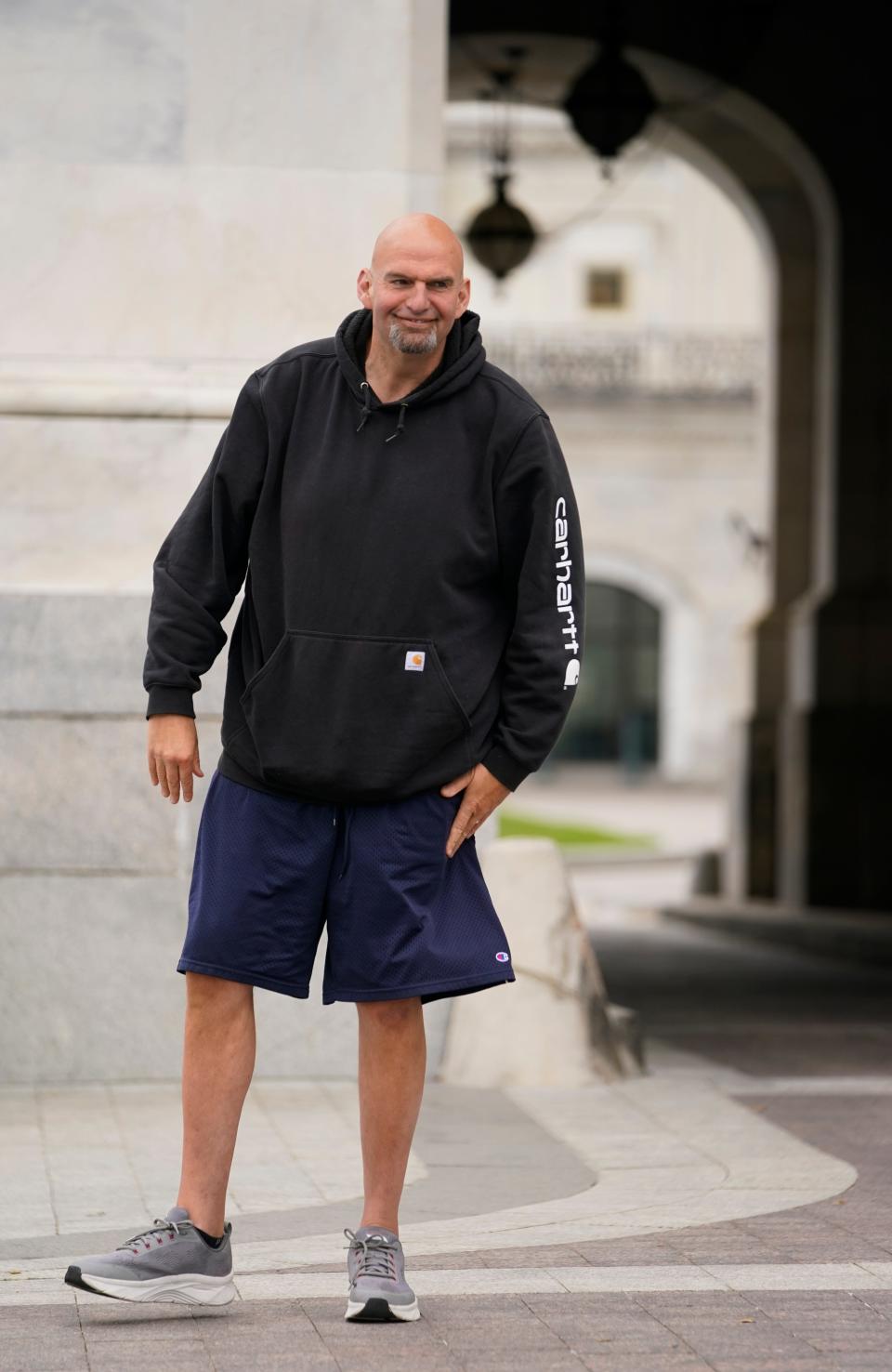What a proposed change in the Pa. primary date means for voters: Pa. Pressroom
- Oops!Something went wrong.Please try again later.
- Oops!Something went wrong.Please try again later.
- Oops!Something went wrong.Please try again later.
- Oops!Something went wrong.Please try again later.
Pa. Pressroom is a regular recap of politics in Harrisburg and Washington, D.C. To submit tips and news leads, contact USA TODAY Network Pennsylvania state capital bureau reporter Bruce Siwy at bsiwy@gannett.com or on X, formerly known as Twitter, at @BruceSiwy.
As the clock ticks toward 2024, talk of moving Pennsylvania's 2024 primary date is growing louder.
Members of the Republican-led state Senate on Sept. 20 approved a bill that would move the date from April 23 to March 19. Senate Bill 224 passed with bipartisan support, with only state Sens. Jarrett Coleman (R-Lehigh) and Scott E. Hutchinson (R-Venango) voting against it.
If signed into law, this proposal would do at least two things.
One, it would give state residents more of a voice in selecting their parties' nominees for president. Pennsylvanians have been among the last in the nation to vote on candidates, meaning that those races are typically decided well before anyone in the commonwealth goes to the polls.
“This bill will change that by positioning Pennsylvania to have more influence in selecting candidates earlier for the general election by moving up the 2024 primary election date to March 19," Senate President Pro Tempore Kim Ward (R-Westmoreland) said in a prepared statement.
Changing the date next year would also avoid a conflict with Passover. Traditionally observant Jews will refrain from activities such as driving during this holiday, which means that voter turnout could be diminished.
Though Democratic Gov. Josh Shapiro — himself Jewish — has signaled general support for moving the primary date, the Senate bill must still advance through the House of Representatives.
A spokesperson for House Majority Leader Matt Bradford told the USA TODAY Network that this proposal is still under review. The decision could be complicated by the fact some Democrats in the House have introduced, but not yet passed, a similar measure that would change the date to April 2 instead.
Members of the House of Representatives are reconvening Sept. 26 for the first time in weeks.
Inside the Beltway
In perhaps a nod to Pennsylvania's junior senator, the dress code for the upper chamber of Congress is going casual.
Last week, U.S. Senate Majority Leader Chuck Schumer (D-N.Y.) announced that the sergeant-at-arms is no longer policing the suit-and-tie standard. The move appears to accommodate U.S. Sen. John Fetterman, the Democrat who is known for his hoodie-and-shorts attire.
It also appears to aggravate some of his colleagues, as U.S. Sens. Tommy Tuberville (R-Ala.) and Susan Collins (R-Maine) told reporters they disagreed with the switch.

"I think there is a certain dignity that we should be maintaining in the Senate, and to do away with the dress code, to me, debases the institution," Collins said.
Fetterman mocked these concerns. He replied, in a press statement: “If those jagoffs in the House stop trying to shut our government down, and fully support Ukraine, then I will save democracy by wearing a suit on the Senate floor next week.”
And the horse race
The state of the economy may be weighing more heavily on Americans than the indictments of their former president.
A Reuters/Ipsos poll conducted in September found that U.S. adults are split almost evenly about Republican frontrunner candidate Donald Trump and the incumbent Democratic President Joe Biden, with each prospective candidate garnering 39% of support. Trump enjoyed the favor of voters most worried about crime, while Biden held a decided advantage among those most concerned about abortion access.
In crucial battleground states, however, the overall numbers tilted slightly toward Trump.

Respondents in Pennsylvania, Arizona, Georgia, Michigan, Nevada, North Carolina and Wisconsin gave Trump an estimated 6-point lead. These seven states were the most narrowly decided in 2020.
Approximately 73% of those polled said their economic situation is the same or worse since the COVID-19 pandemic.
Still, nearly a fourth of the potential battleground state voters may remain in play for the candidates. The poll found that 24% in these places consider themselves undecided in a Trump-Biden rematch.
This article originally appeared on York Daily Record: When is the PA primary 2024? Legislature considers change

